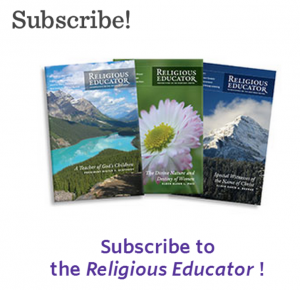
“The Religious Educator,” a journal triannually produced by the Religious Studies Center at BYU, is said to be one of the “best kept secrets” on campus according to Devan Jensen, executive editor of “The Religious Educator.”
A variety of religious professionals uses this insightful resource of perspectives on the restored gospel few students at BYU know about.
Articles featured in the journal are submitted by general authorities and other LDS Church officers, religion professors and seminary and institute teachers. Some material is submitted by graduate students and current students.
“‘The Religious Educator’ serves the needs and interests of those who study and teach the restored gospel of Jesus Christ on a regular basis,” text from “The Religious Educator” reads.
Jensen said the journal is used by seminary and institute teachers, religion professors and general interest readers. The hope is that more students will discover the journal and glean knowledge from its pages.
“It teaches the restored gospel in an accessible, faithful and scholarly way,” Jensen said. “We try to present fresh perspectives on the gospel, and all the material is peer reviewed.”
According to Thomas Wayment, publications director of the Religious Studies Center and editor of “The Religious Educator,” the origin of the journal was brought about by Robert Millet, who was the dean of the College of Religious Education at BYU in 2000.
“Bob Millet determined that religious education needed a venue where religious educators could talk to one another and provide one another with resources that would enable them to improve their teaching,” Wayment said.

Jensen compared the journal to “The Ensign.” Just like “The Ensign,” the journal talks about different religious topics; however, it often allows for 20–30 pages on a particular topic so people can “really get into it.”
The goal of the journal is to speak to anyone who teaches the gospel. This includes students who may have callings in the church that require them to teach, or even LDS missionaries.
The journal is produced in print, but the most common place to obtain the material is online. The current released issues require a $10 annual subscription fee. Past issues are free.
“Our goal is not to obtain profit but to strengthen teaching,” Wayment said.
To subscribe to “The Religious Educator” or view past issues online, visit their website at rsc.byu.edu.




